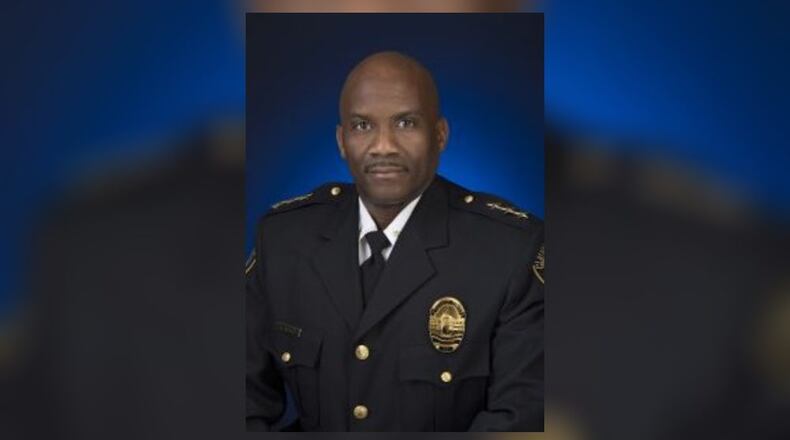After filling in as Clayton County's top cop for the past four days, Kevin Roberts was named Clayton Chief of Police on Tuesday in unanimous vote by the Board of Commissioners.
Roberts, a deputy chief in the department, succeeds interim Police Chief Joseph Woodall, who declined to pursue the top job and retired last Friday. Roberts was named interim chief after Woodall’s departure.
“It’s a great honor and privilege to serve the men and women of the Clayton County Police Department and the citizens of Clayton County,” Roberts said after his promotion was announced during Tuesday’s board meeting. “I will make my best effort to enhance the police department and make sure we take care of the needs of the citizens.”
Clayton, one of metro Atlanta's biggest counties, has been without a permanent full-time leader since former police chief Mike Register left the department last May. Register was named Cobb County's top cop in July.
Clayton Police has struggled with retaining leaders in the top job since 2015 when former police chief Greg Porter elected to retire after the commission decided to move him from the post to become head of the county's Emergency 911 system. In a 3-2 controversial decision, the commission voted to separate the police department and 911 into separate entities.
Porter claimed that his removal as police chief was retaliation for speaking out against Commission Chairman Jeff Turner, who he said was undermining his role as the department's leader. Turner denied the accusation. The following January, Porter filed a lawsuit against the commission under the state's Whistleblower Act alleging he was reassigned because of issues with Turner.
The new police chief’s appointment Tuesday came after the commission held brief public interviews with Roberts and two other finalists for the position — Shawn Buchanan, a lieutenant with the East Point Police Department, and Robert Jones, warden of the Carroll County Correctional Institution. Each man was asked three questions, including what he would do to retain officers and what innovations would he bring to the department to improve policing.
As the process unfolded, it was clear some of the commissioners were uncomfortable the public interview process. They could be heard on microphones asking the wisdom of such a process and why it was authorized.
The commmisioners also appeared taken aback when the commission attorney told them that because the meeting was public, all three men could sit in the commission chambers and listen to their competitors’ answers to questions if they chose to do so. The men ultimately decided to leave the room as each was interviewed.
“I’m not too fond of that type of interviews,” Turner said an interview with The Atlanta Journal-Constitution early on Tuesday.
About the Author
Keep Reading
The Latest
Featured



